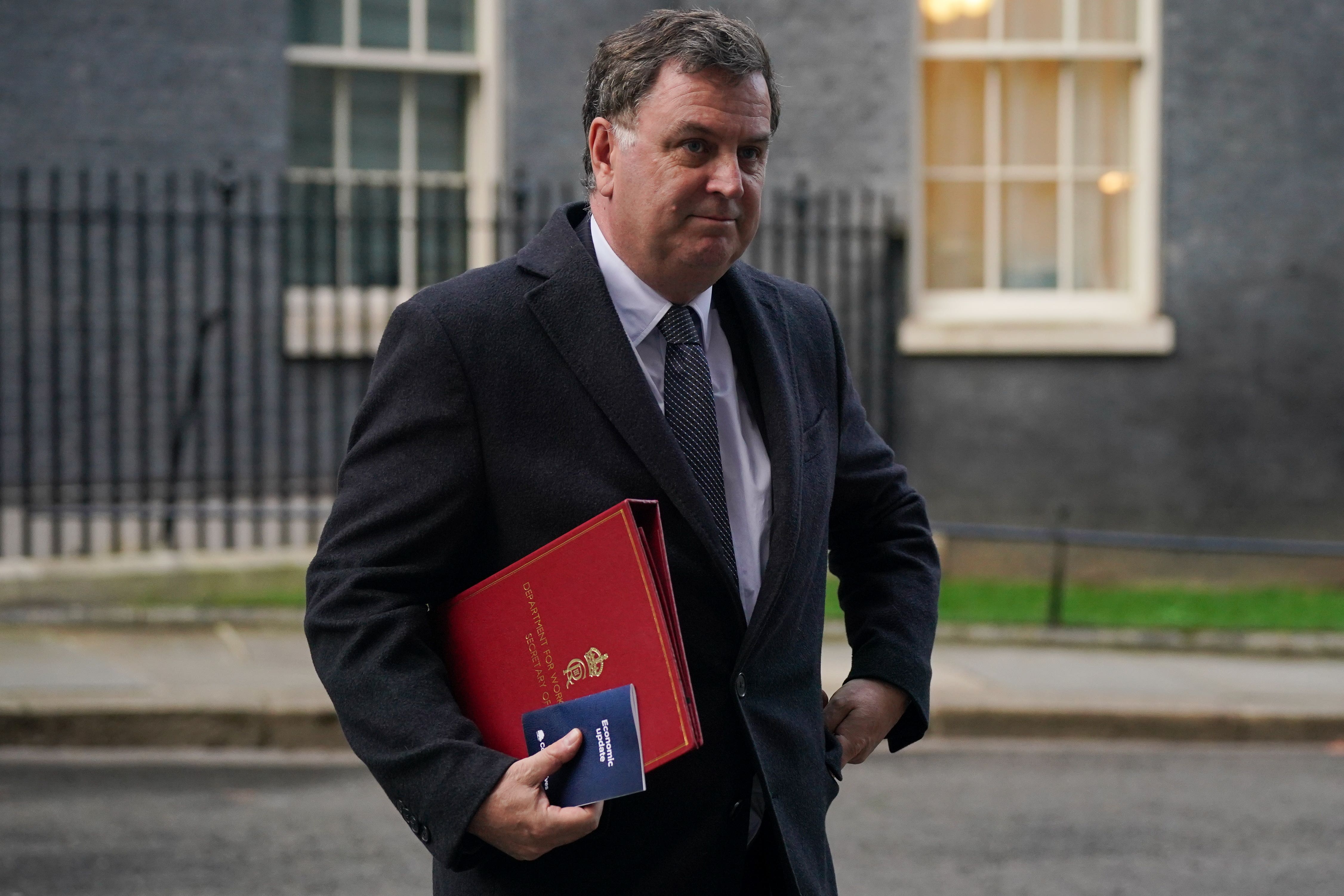Why the Tories think giving disabled people vouchers will be a vote-winner
With the government’s latest salvo against Britain’s ‘sick-note culture’, some disabled people look set to lose their monthly PIP payments. But, says James Moore, it’s a blatant misrepresentation of what the benefit is for – and the clearest indication of which section of society will be in the firing line come the general election


I’ve been searching for the right word to best describe the government’s latest raft of proposals to cut – sorry, reform… – disability benefits. Twisted? Cynical? Nasty? They’ll all do you. There are plenty more available in a good thesaurus.
For there is simply no sugar-coating what the Conservatives’ plans, as set out by work and pensions secretary Mel Stride, amount to: they are a calculated and vicious assault on disabled Britons.
As part of its wider crackdown on “sick-note culture”, disabled people – notably, those with depression or anxiety – face being stripped of monthly cash payments in favour of therapy, or having their monthly support payments given as vouchers, rather than cash.
In my list of adjectives, I should have included “mendacious”. They’ve been saying this is about making the system “fairer”. That was, remember, the same line they used in 2013, when Iain Duncan Smith replaced Disability Living Allowance with Personal Independence Payment, or PIP, to help people who have extra care or mobility needs as a result of a disability.
Back then, “fairer” meant people with cystic fibrosis were told to get themselves to work, because on good days, they could – even though on bad days, they could barely manage a few steps unaided. “Fairer” meant patients with terminal cancer were told they should go and get a job.
Now, Stride and Rishi Sunak are claiming that their latest cost-cutting initiatives – which could mean people suffering with mental illnesses losing some of their current benefits – are all about the F-word.
What is particularly infuriating is how Stride, launching his consultation by saying that getting back to work is “good for mental health”, has contributed to the notion that PIP has, up till now, been a handout to the workshy. The minister has also said that the over-medicalisation of everyday worries is "definitely a factor" in record long-term sickness rate and the "spiralling" benefits bill.
We’ve all heard the pub know-it-all narrating the story: “‘’Course, those who need help should get it – but Bob was working perfectly well until his wife left him, and now he’s on the disability with a bad back and depression…” This is the kind of sentiment that Stride and Rishi Sunak are seeking to egg on.
But PIP is there to support disabled Britons with the ruinous extra costs we face simply going about our daily lives. It is not means-tested, and it is not related to whether you work or not, because those costs are universal. Scope, the disability charity, estimates that they come to £975 a month and rising, thanks to inflation.
This figure includes equipment. It includes the extra expense of heating the home if your impaired mobility means you don’t move around much. It includes specialist food. Treatments you might need that aren’t available on the NHS. Mobility aids. Insurance. It mounts up and up and up. Needless to say, while PIP helps – and the amount received varies on your level of disability – it doesn’t come even close to covering the bills.
In 2014, I sat as a member of the independent Extra Costs Commission, a year-long inquiry set up by Scope. Its aim was to put forward practical, workable solutions to the costly reality of disabled life. And while we necessarily had to limit our area of focus – it rapidly became clear that to pronounce on everything we identified as a problem would be impossible – we produced a worthwhile final report, which was submitted to the government. The result? An ill-tempered and defensive junior minister was trotted out to accept the document and say a few words, before hurrying off to his next appointment.
That official response spoke volumes. There are ways of cutting the costs disabled people face – but the government hasn’t made the slightest effort to investigate them. Mental health conditions can be treated, but no attempt has been made to address the lack of NHS support.
Instead, we have Stride striking the pose of a revivalist preacher, banging about how great it is to work, while ignoring the profound challenges that disabled people face with getting a job and keeping it, even in a labour market with an abundance of vacancies.
But, then, this isn’t about disabled people – it’s blatantly political. Stride and his fellow ministers are positioning themselves so that if Labour does the decent thing and opposes these reforms, the Conservatives can then claim to be the party of workers, while Starmer’s is the party of shirkers.
The language of welfare debate produces more heat than light, and is rarely helpful – except, that is, when there’s an election to be won.
Join our commenting forum
Join thought-provoking conversations, follow other Independent readers and see their replies
Comments
Bookmark popover
Removed from bookmarks